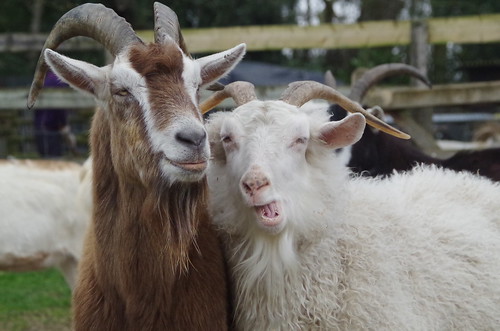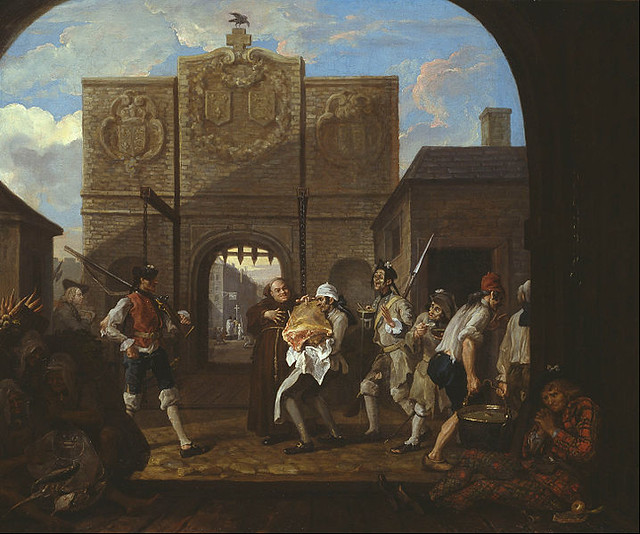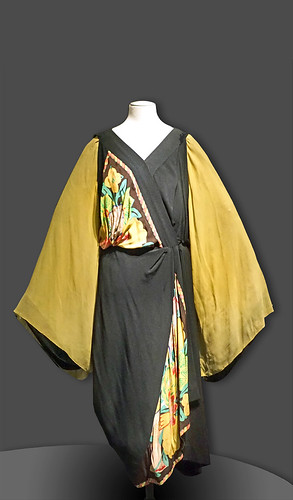Welcome to Word Buzz Wednesday, your go-to place for the most interesting words of the week. The latest: the art of pointing; an adorable monkey term; tomayto, tomahto, let’s call the whole thing Canadian English.
shisa kanko
“The pointing itself originates from Asia. As detailed in an Atlas Obscura story, the technique is called shisa kanko.”
“Conduct Yourself,” Topic, June 2017
If you’ve ever ridden a New York subway, you might have noticed the conductor pointing. What they’re pointing at is a zebraboard, says Topic, “a black-and-white sign that aligns perfectly” with their “window after the train has pulled all the way into the station.” By pointing at the zebraboard, they make sure the “station platform is lined up alongside the full length of the train” before they open the doors, or else “it’s likely that some passengers would exit directly onto the tracks.”
Shisa kanko, which translates from Japanese as pointing and calling, is a more elaborate set of conductor gestures and calls. See some shisa kanko in action.
drapetomania
“A Mississippi psychiatrist in the 19th century proposed that slaves who attempted escape suffered from ‘drapetomania.’”
Joseph Frankel, “Psychics Who Hear Voices Could Be Onto Something,” The Atlantic, June 27, 2017
Drapetomania, the overwhelming urge to run away, is a pseudo-disease devised by physician Samuel A. Cartwright. The term comes from the Greek words drapetes, meaning “escapees” or “runaways,” and mania, “madness.”
McModern
“Though McModerns are commonly found in the places where modernism itself thrives—indoor-outdoor climates like the West Coast and the Southwest, and near liberal cities on the East Coast—they are also beginning to pop up in burgeoning tech hotbeds south of the Mason-Dixon, such as central North Carolina and Atlanta, Georgia.”
Kate Wagner, “The rise of the McModern,” Curbed, June 30, 2017
The term McModern plays off McMansion, a large and imposing house regarded as ostentatious and lacking architecture integrity. The earliest citation in the Oxford English Dictionary is from 1990: “The move-up homes trumpeted by builders are ‘McMansions—a very pale version of the American dream,’ he said.”
monkey dumpling
“When temperatures drop, macaques often huddle together to pool their body heat, forming what’s known as a saru dango, or ‘monkey dumpling.’”
Alan Taylor, “Winners of the BigPicture Natural World Photography Competition,” The Atlantic, June 29, 2017
The term saru dango is Japanese in origin, where saru means monkey and dango refers to a sweet dumpling made of sticky rice and often eaten three or more on a stick.
Canadian Dainty
“The Canadian Dainty accent is similar to the Mid-Atlantic accent, native to Old Hollywood, which melded American English with British pronunciation.”
Lakshine Sathiyanathan, “Some Canadians used to speak with a quasi-British accent called Canadian Dainty,” CBC News, July 1, 2017
Canadian Dainty, a term coined by linguist Jack Chambers, is a “quasi-British accent,” says CBC, that’s “now mostly extinct.” In the 19th century, “British etiquette and speech were perceived as superior,” and so during the Victorian era, “children were taught to swap native Canadian pronunciation for the British counterpart.” Tomahto for tomayto, for example, and shed-yool for schedule.






